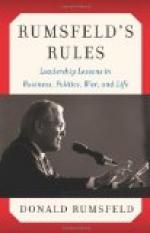I accept the maxim that it is no use crying over spilt milk or even over spilt blood, but the maxim does not hold when the men whose decision seems inexplicable are in a position to repeat it on a grander scale. The temper of the Boers as early as June left no doubt in any South African mind that if equality of rights and British supremacy were to be secured it would have to be by the sword. The Government alone among those who cared for the Empire failed to realise this in time. That has been admitted. The excess of hope for peace has been condoned and is being atoned for on the battlefields of Natal. But to-day the temper of Europe leaves no room for doubt that, in case of a serious reverse in Natal, Europe if it can will interfere. Have Mr. Goschen and Lord Lansdowne worked out that problem, or is there to be a repetition in the case of the continental Powers—an adversary very different from the Boers—of patience, postponement, and haphazard? It is not the situation in South Africa that gives its gravity to the present aspect of things, but the situation in Europe. Upon the next fortnight’s fighting in Natal may turn the fate not merely of Natal and of South Africa, but of the British Empire. That this must be the case was plain enough at Christmas, and has been said over and over again. Yet this was the crisis which was met by sending to the decisive point a reinforcement of ten thousand men to do the best they could along with the six thousand already there during a five weeks’ campaign.




